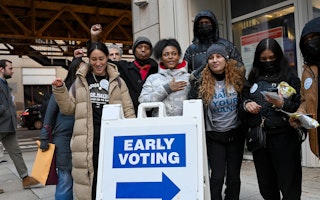The UN High Commissioner for Refugees estimates that 12 million people around the world are stateless—that is, living without the recognition or protection of any country.
An undetermined number live in the United States. And while the U.S. Supreme Court has recognized statelessness as a “condition deplored in the international community of democracies” with “disastrous consequences,” U.S. law does not afford specific protections to the stateless. Nor does it provide any avenue for those caught in limbo to acquire lawful status or citizenship. The stateless are left to live on the margins without any means to support themselves lawfully and in constant fear of exposure.
The UNHCR and the Open Society Justice Initiative have produced a new report that looks at the problem of statelessness in the United States. The report offers recommendations to aid policy makers and legislators in implementing changes to improve the lives of stateless people—changes that would allow them to participate as full members of society.
Please join us at the Open Society Foundations’ Washington Office for a luncheon panel discussion.
Speakers:
- Vincent Cochetel, Regional Representative for the USA and the Caribbean, UNHCR
- Julia Harrington Reddy, Senior Legal Officer for Equality and Citzenship, Open Society Justice Initiative
- Sarnata Reynolds, Statelessness Program Manager, Refugees International
- U.S. Government official (to be confirmed)
- Bill Frelick, Director of the Refugee Program, Human Rights Watch (moderator)
RSVP to molitori@unhcr.org by December 7.
Read more
Online Hate Speech
New SEC Complaint Says Meta Misled Shareholders over Myanmar Hate

A whistleblower complaint to the SEC argues that the social media giant Meta misrepresented its role in fueling violence against Myanmar’s Rohingya—highlighting the need for more platform accountability for online hate.
Civic Engagement
Bolstering Women and Youth, Linchpins of Democracy

Philanthropy has historically underfunded women and youth. Open Society’s new $50 million investment in their engagement addresses that imbalance—and builds on recent surges in civic engagement crucial to the future of American democracy.
Art and Activism
Reimagining January 6th

The insurrection at the U.S. Capitol left him in a cold sweat. Creating a comic book seemed like one way to reach people not obsessively following the news and spark activism to help defend a multicultural democracy.